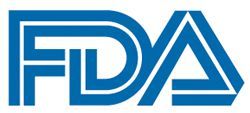News
Article
FDA Approves Subcutaneous Atezolizumab and Hyaluronidase-tqjs for Use in All Indications of IV Atezolizumab
The FDA has approved subcutaneous atezolizumab for use in all indications as the intravenous formulation.
FDA

The FDA has approved atezolizumab and hyaluronidase-tqjs (Tecentriq Hybreza) for subcutaneous injection for use in all adult indications as the intravenous formulation of atezolizumab (Tecentriq), including non–small cell lung cancer (NSCLC), small cell lung cancer (SCLC), hepatocellular carcinoma (HCC), melanoma, and alveolar soft part sarcoma (ASPS).
The regulatory decision was supported by data from the phase 3 IMscin001 trial (NCT03735121). Findings showed that the geometric mean ratio (GMR) of subcutaneous atezolizumab and intravenous atezolizumab for cycle 1 observed trough serum concentration (Cycle 1Ctrough) was 1.05 (90% CI, 0.88-1.24) in patients with locally advanced or metastatic NSCLC. The area under the curve from days 0 to 21 (AUC0-21days) was 0.87 (90% CI, 0.83-0.92).1,2
Data for overall response rate (ORR), progression-free survival (PFS), and overall survival (OS) were similar for the subcutaneous and IV formulations.1
“By enabling subcutaneous administration for a cancer immunotherapy, [atezolizumab and hyaluronidase] now offers patients with multiple cancer types and their physicians greater flexibility and choice of treatment administration,” Levi Garraway, MD, PhD, chief medical officer and head of Global Product Development at Genentech, stated in a news release.3 “We are pleased to introduce this new subcutaneous formulation that builds on the established safety and efficacy profile of intravenous Tecentriq and can treat patients faster and in more accessible settings.”
The randomized, open-label, multicenter, noninferiority study enrolled patients with histologically or cytologically documented locally advanced or metastatic NSCLC who were naive to cancer immunotherapy. Key inclusion criteria consisted of measurable disease per RECIST 1.1 criteria and an ECOG performance status of 0 or 1.2
Patients were randomly assigned 2:1 to receive subcutaneous 1875 mg of atezolizumab (n = 247) or 1200 mg of the IV formulation (n = 124) once every 3 weeks.
The study's co-primary end points were Cycle 1Ctrough and AUC0-21 d. Secondary end points included steady-state exposure, efficacy, safety, and immunogenicity.
The most common any-grade adverse effects reported in at least 10% of patients were fatigue, musculoskeletal pain, cough, dyspnea, and decreased appetite.1
References
- FDA approves atezolizumab and hyaluronidase-tqjs for subcutaneous injection. FDA. September 12, 2024. Accessed September 12, 2024. https://www.fda.gov/drugs/resources-information-approved-drugs/fda-approves-atezolizumab-and-hyaluronidase-tqjs-subcutaneous-injection
- Burotto M, Zvirbule Z, Mochalova A, et al. IMscin001 Part 2: a randomised phase III, open-label, multicentre study examining the pharmacokinetics, efficacy, immunogenicity, and safety of atezolizumab subcutaneous versus intravenous administration in previously treated locally advanced or metastatic non-small-cell lung cancer and pharmacokinetics comparison with other approved indications. Ann Oncol. 2023;34(8):693-702. doi:10.1016/j.annonc.2023.05.009
- FDA approves Genentech’s Tecentriq Hybreza, the first and only subcutaneous anti-PD-(L)1 cancer immunotherapy. News release. Genentech. September 12, 2024. Accessed September 12, 2024. https://www.gene.com/media/press-releases/15035/2024-09-12/fda-approves-genentechs-tecentriq-hybrez








